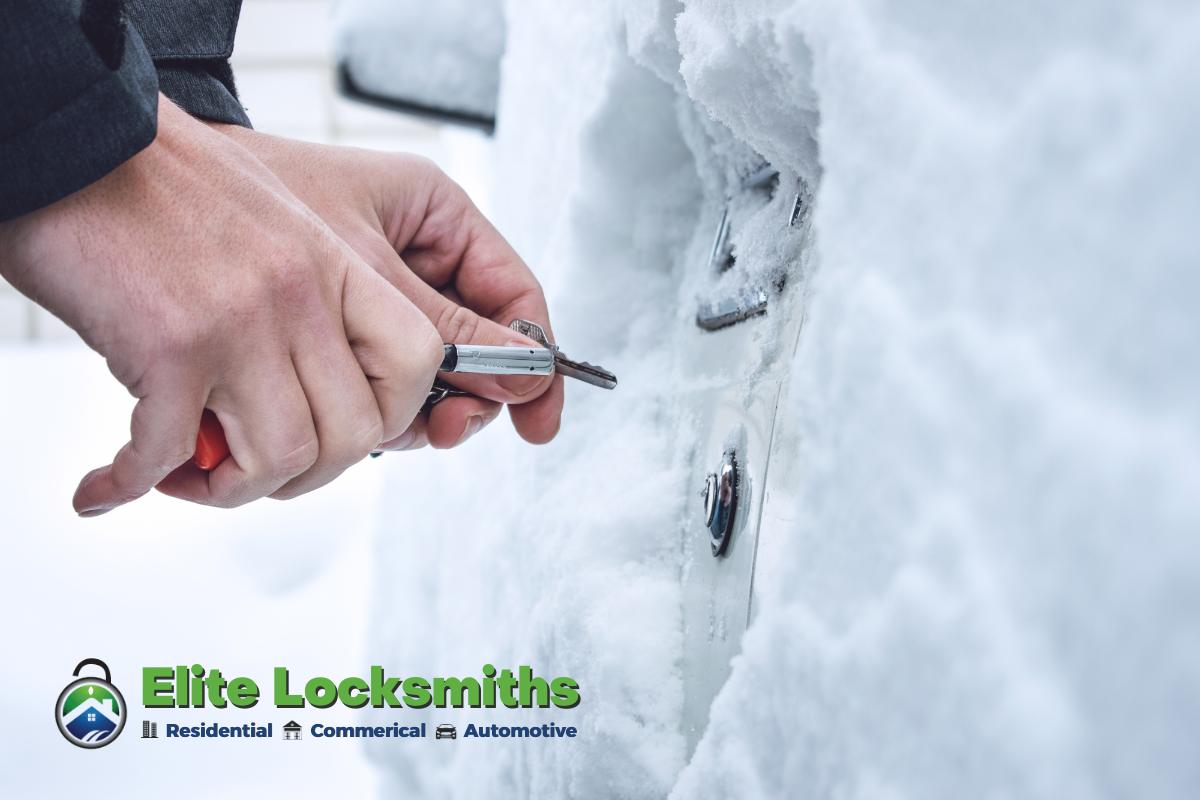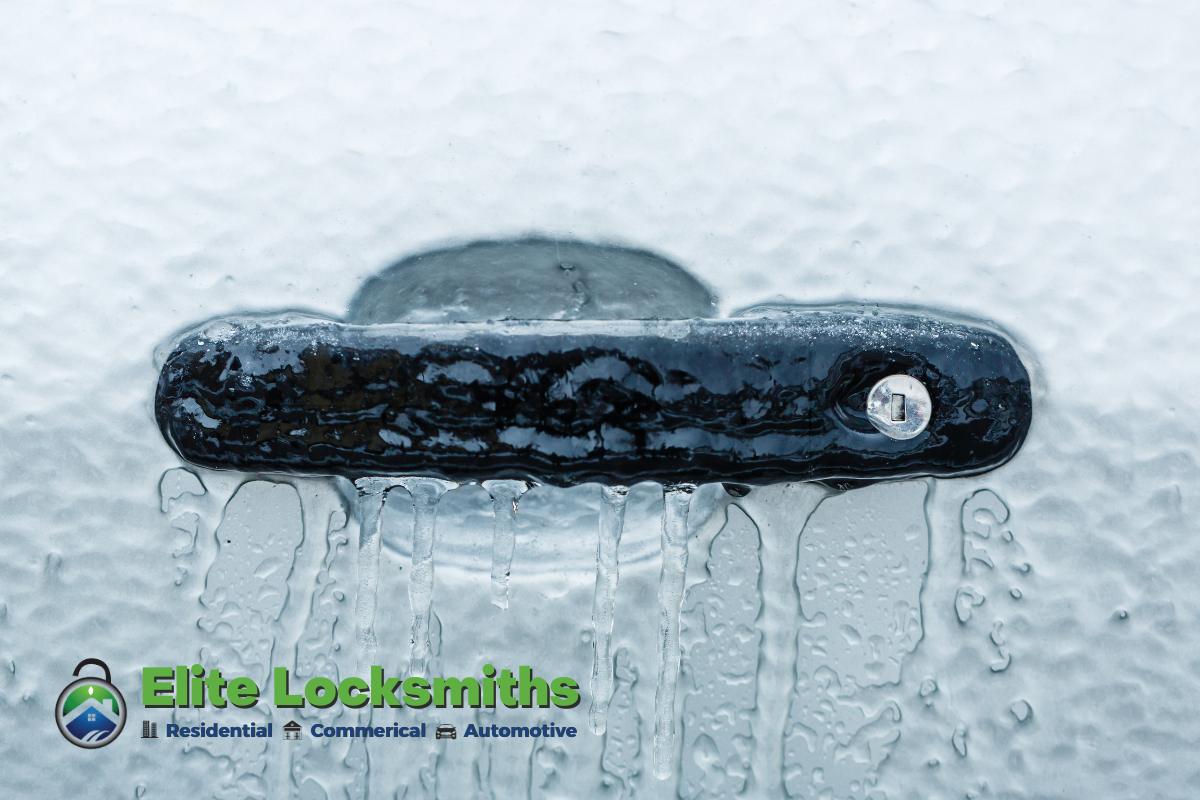Locks are a critical component of your Home or Business Security, but they can be surprisingly sensitive to changes in weather. Different weather conditions can impact the functionality and longevity of your locks, sometimes leading to issues that compromise security.
Understanding how weather affects your locks and what you can do about it can help you maintain their performance and ensure your property remains secure year-round.
1. Cold Weather
Cold weather can have a significant impact on locks, particularly in regions that experience harsh winters. Low temperatures cause metal components within the lock to contract, potentially leading to several issues:
- Frozen Locks: Moisture can enter the lock and freeze, preventing the key from turning. This is a common issue in winter and can be frustrating when trying to get inside your home or business.
- Stiff Mechanisms: The cold can cause the internal mechanisms to stiffen, making it difficult to insert or turn the key. Over time, this can increase wear and tear on both the key and the lock.
What to Do About It:
- Lubrication: Use a graphite-based or Silicone-based Lubricant specifically designed for locks. Avoid oil-based lubricants as they can attract dust and grime.
- De-Icers: Carry a lock de-icer spray in your car or bag during winter. These products can quickly thaw frozen locks, allowing you to gain entry.
- Cover the Lock: Use a lock cover to protect outdoor locks from moisture and snow.
2. Hot Weather
Heat can also affect the functionality of your locks, particularly in areas with extreme summer temperatures. High temperatures cause metal components to expand, which can lead to:
- Misalignment: The expansion of metal parts can cause the lock to become misaligned with the door frame, making it difficult to turn the key or engage the lock properly.
- Warping: Wooden doors and frames can warp in hot weather, affecting the alignment of the lock and the door and leading to operational difficulties.
What to Do About It:
- Regular Maintenance: Regularly check your locks and door frames for any signs of warping or misalignment and address these issues promptly.
- Adjust Door Frames: If your door frame has warped, consider adjusting or replacing it to ensure the lock aligns properly.
- Shade and Ventilation: To minimize the impact of heat, try to keep your doors and locks shaded and well-ventilated.
3. Humidity
High humidity levels can cause moisture to accumulate inside the lock, leading to several problems:
- Rust and Corrosion: Excess moisture can lead to rust and corrosion of the lock’s metal components, compromising the lock’s integrity and functionality.
- Sticking Mechanisms: Humidity can cause the internal parts to swell slightly, making the lock mechanism sticky or difficult to turn.
What to Do About It:
- Anti-Rust Treatments: Apply anti-rust treatments to your locks to protect them from corrosion. These treatments can create a barrier that prevents moisture from causing damage.
- Silica Gel Packs: Place silica gel packs near your locks, especially in humid environments, to absorb excess moisture.
- Regular Cleaning: Clean your locks regularly to remove any buildup of dirt or grime that can be exacerbated by humidity.
4. Rain and Moisture
Rain and general moisture can also negatively affect the performance of your locks, especially if they are exposed to the elements without adequate protection:
- Water Ingress: Water can seep into the lock mechanism, causing rust, freezing (in cold conditions), or swelling of internal parts.
- Mold and Mildew: Excess moisture can lead to the growth of mold and mildew around the lock area, which can affect both the lock and the door.
What to Do About It:
- Weatherproof Locks: Install weatherproof locks designed to withstand exposure to the elements. These locks typically have protective coatings and seals to keep moisture out.
- Protective Covers: Use protective covers for outdoor locks to shield them from rain and moisture.
- Seal Gaps: Ensure doors and windows are properly sealed to prevent water from seeping into the lock mechanisms.
Conclusion
Weather can profoundly impact the functionality and durability of locks. By understanding how different weather conditions affect locks and taking proactive measures to mitigate these effects, you can ensure that locks remain in good working condition year-round.
Regular maintenance, appropriate protective measures, and suitable lubricants and treatments can help you keep your locks functional and secure, regardless of the weather. If you encounter persistent issues with your locks, consider consulting a Professional Locksmith for expert advice and assistance.




